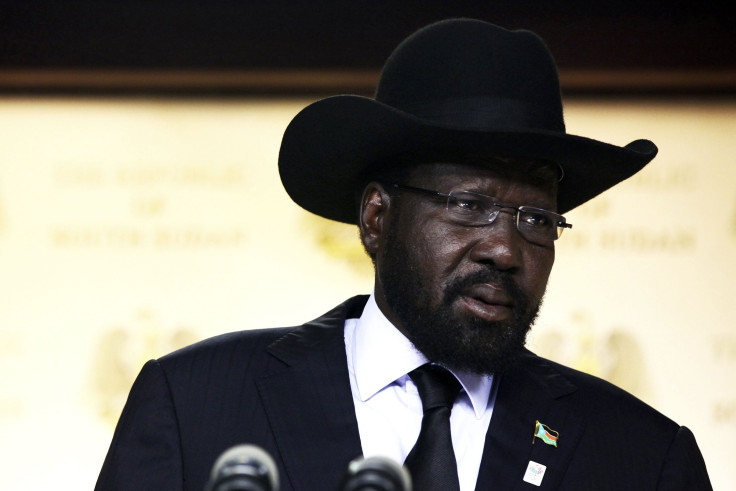South Sudan Situation Worsens As President Sacks Entire Cabinet Plunging Young Nation Into Political Turmoil

The world's youngest country descended into political turmoil on Wednesday evening when South Sudan's President Salva Kiir sacked his entire cabinet.
The country has been facing monumental challenges since gaining independence in July 2011, including disputes with Sudan in the north, domestic clashes among ethnic groups and an ongoing economic crisis. Now, all 29 cabinet ministers and their deputies have been suspended, and Kiir is calling for patience as he cobbles together a new administration.
"Give the president a chance to form his government... he has already empowered the technocrats to see the day-to-day running of the administration," said Barnaba Marial Benjamin via radio address shortly after being suspended from his post as information minister, according to AFP.
Under-secretaries are managing the day-to-day business of governance as the crisis unfolds, and security officials are keeping a close watch on the streets of Juba, the country's capital.
South Sudan was formed when it split from Sudan following decades of conflict. The South had long suffered under the dictatorial regime of Omar al-Bashir, who holds power in Sudan’s capital city of Khartoum. A former anti-Khartoum rebel group called the Sudan People's Liberation Movement, or SPLM, has been South Sudan's ruling party since independence.
Kiir's decision to fire his cabinet highlights serious power struggles within the party, which is made up of a group of former rebel leaders who have struggled to establish order and promote development since independence.
"Things have not been moving in the government because of this internal fighting over who is going to control the SPLM," Nhial Bol, editor of Juba's Citizen TV, told Reuters.
Well-known officials like Vice President Riek Machar -- an influential political rival of Kiir's, and possibly the main target of the sacking -- and SPLM Secretary General Pagan Amum were not spared from the suspension, and their political futures remain unclear. Some ministers may return to their posts in Kiir's new cabinet.
Meanwhile, South Sudan's 11 million people are still dealing with longstanding problems that have plagued the young country since independence. The landlocked nation took the vast majority of Sudan's oil reserves when it split from the north. But Khartoum retains the pipelines South Sudan needs to get its product to market.
Before the country split into two, Sudan produced more than 450 thousand barrels of oil a day. But following South Sudan's breakaway, disagreements over pipeline fees led to a shutdown in oil flows beginning in January 2012, stripping both countries of their main revenue source and ratcheting up inflation.
The oil began flowing again in April but cross-border disputes continue. A current spat over South Sudan's alleged support for Sudanese insurgents -- which Juba denies -- had Sudan threatening last month to shut down the main pipeline within 60 days.
This week, South Sudan countered with a proposition to shut down production as soon as July 31. That announcement came shortly before Kiir fired his ministers.
No date has yet been set for a new cabinet to assume its duties.
© Copyright IBTimes 2024. All rights reserved.




















